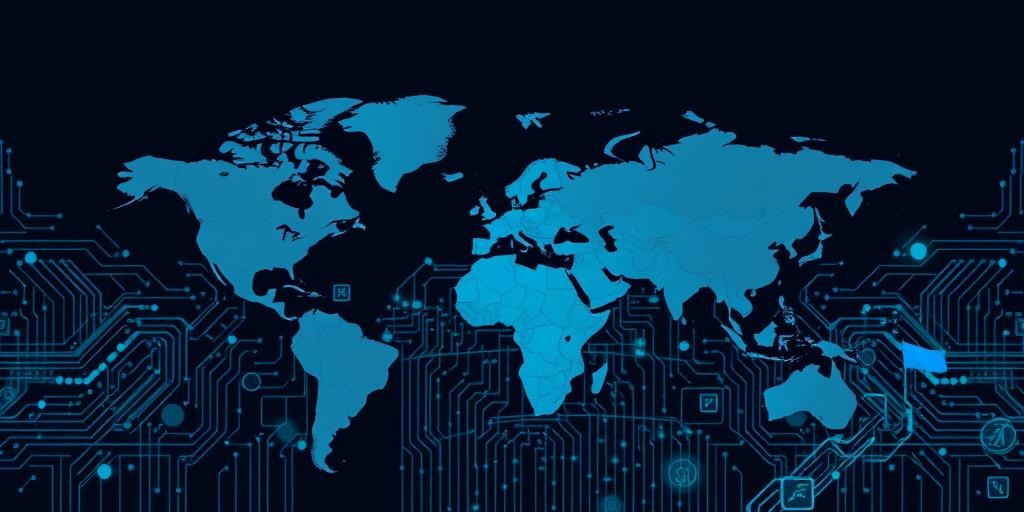The Geopolitics of Technology: A Shifting World Order
Technology is no longer just about innovation and convenience; it's a critical arena of geopolitical competition. Nations are vying for dominance in key technological sectors, recognizing that leadership in these areas translates to economic and strategic power. This article examines the key aspects of the geopolitics of technology, exploring the implications for international relations, national security, and the global economy.
The Rise of Tech Nationalism
Tech nationalism, the belief that a nation's technological capabilities are vital to its security and prosperity, is on the rise. Countries are implementing policies to protect domestic tech industries, promote indigenous innovation, and restrict foreign access to sensitive technologies. This trend is fueled by concerns about cybersecurity, data privacy, and the potential for foreign interference.
Key Areas of Tech Competition
Several technological domains are at the heart of geopolitical competition:
- Artificial Intelligence (AI): AI is seen as a transformative technology with applications in defense, healthcare, and finance. Nations are investing heavily in AI research and development, aiming to become leaders in this field.
- 5G and Telecommunications: The race to deploy 5G networks has become a geopolitical flashpoint, with concerns about the security and reliability of equipment from certain vendors.
- Semiconductors: Semiconductors are essential components in virtually all electronic devices. Control over semiconductor manufacturing is viewed as a strategic imperative, leading to efforts to reshore production and build domestic capabilities.
- Data and Cybersecurity: Data is the lifeblood of the digital economy, and nations are enacting laws to control its flow and protect it from cyberattacks. Cybersecurity is a growing concern, as states and non-state actors engage in espionage and sabotage.
Implications for International Relations
The geopolitics of technology is reshaping international relations in several ways:
- Great Power Competition: Technology is a key area of competition between the United States, China, and other major powers. This competition is playing out in trade disputes, investment restrictions, and diplomatic pressure.
- Alliances and Partnerships: Nations are forming alliances and partnerships to share technological expertise, coordinate policies, and counter common threats. These alliances can strengthen national capabilities and provide access to new markets.
- Norms and Standards: Countries are working to establish international norms and standards for technology, covering issues such as data privacy, cybersecurity, and AI ethics. These norms can shape the development and deployment of technology worldwide.
National Security Considerations
Technology has profound implications for national security:
- Cyber Warfare: States are developing offensive and defensive cyber capabilities, raising the risk of cyberattacks on critical infrastructure and government systems.
- Military Modernization: Technology is transforming military capabilities, with AI, drones, and autonomous weapons systems becoming increasingly important.
- Espionage and Surveillance: Technology is used for espionage and surveillance, both domestically and internationally. This raises concerns about privacy and civil liberties.
The Future of Tech Geopolitics
The geopolitics of technology is likely to intensify in the coming years, as technology becomes even more central to economic and strategic power. Nations will need to adapt to this changing landscape by investing in innovation, strengthening their cybersecurity defenses, and working with allies to promote a stable and secure technological order. The decisions made today will shape the future of technology and its impact on the world.









